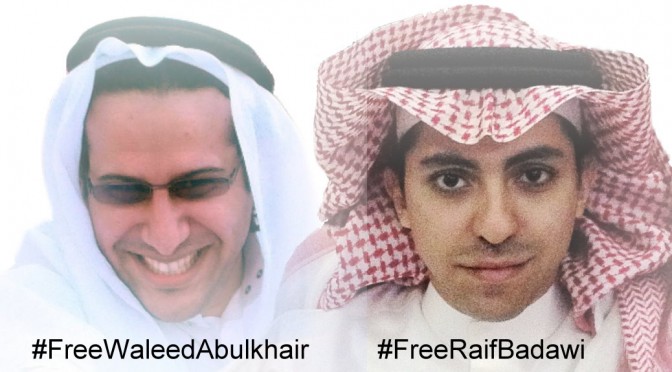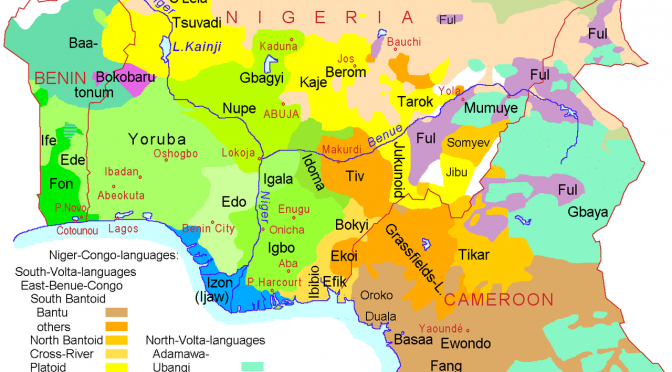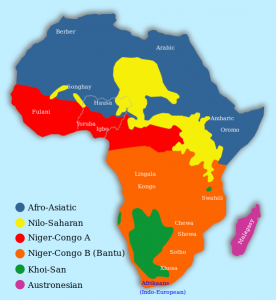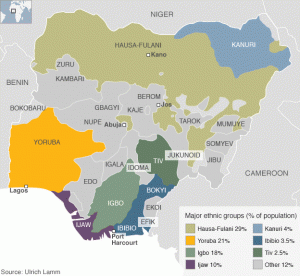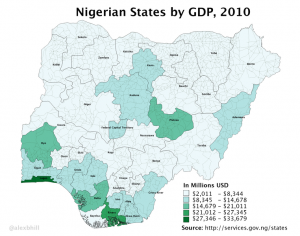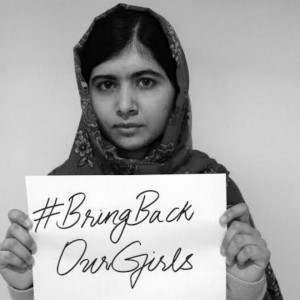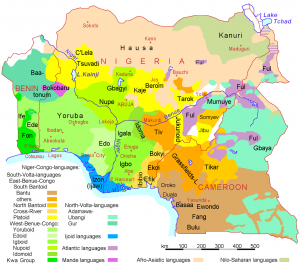In Saudi Arabia Raif Badawi remains in prison under threat of 950 more lashes and 9 more years of a 10 year sentence and a further 10 year travel ban upon release, as punishment for “insulting Islam”. Additionally, his trial lawyer, Waleed Abulkhair, who set up a human rights monitoring organisation (MHRSA) in Saudi, was also subsequently charged himself for various breaches. Both had their sentences recently increased by half again, not cut or commuted.
Waleed Abu Al-Khair
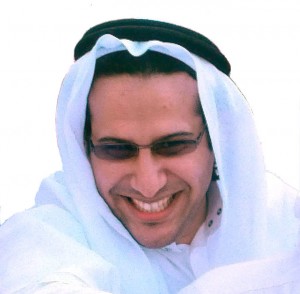 Among other things, Waleed Abu Al-Khair (also written as Abulkhair) was accused and convicted of “breaking allegiance with the ruler” and sentenced to a 15 year prison term in 2014 and a 15 year travel ban upon his release, he was already prohibited from travel since 2012.
Among other things, Waleed Abu Al-Khair (also written as Abulkhair) was accused and convicted of “breaking allegiance with the ruler” and sentenced to a 15 year prison term in 2014 and a 15 year travel ban upon his release, he was already prohibited from travel since 2012.
Abulkhair had defended many people for socio-religious and political crimes in Saudi, including a British national when he was hired by the British embassy. If political is even a word that can be voiced in a state that is an absolute rather than even a constitutional monarchy. Opposition and democracy are thus, inherently illegal.
He ran, in his own home, a mixed sex politico-religious discussion group or salon called Smood (“resistance”) and used Twitter and Facebook for further discussion, somewhere he felt free at last. Indeed, Forbes magazine listed him as one of the Top 100 Most Influential Arabs on Twitter.
Social media activity is an uncensored medium that has got away from Saudi Arabia, which has the largest number of Arab Twitter users and a Facebook user base second only to Egypt. Perhaps the United Nation’s big #SocialUN gathering on 30 January and discussion of digital diplomacy will foster awareness of those imprisoned for freedom of speech on social media.
Yet, in all this, Waleed knows no hate. As he wrote in his last letter before prison:
“Do I hate anyone?” I wonder, particularly those who have insulted me and my family, using the foulest of words in the course of the investigations? Do I hate those who imposed a travel ban on me for years with no legal reason? Do I hate the judge who ordered that I be put in jail simply because I have a signed a statement calling for fair trials? Or should I hate the Prince, whose emissaries have continuously threatened me with being put in prison for years if I refrain from signing an affidavit? Do I hate men of religion who drafted heinous reports about me to the security agencies – full of lies and proclaiming me an apostate? Or should I hate the people using pseudonyms on new media outlets, so they could lie about me and my family so as to damage my reputation further?
I reach deep within my heart and find that I bear no grudge against anyone. I realize that I rather feel sorry for them, the same way I feel sorry for those who decided to give up their freedom, just like an alcoholic who roams aimlessly after willingly giving up his mind to liquor.
Hamza Kashgari
Freedom of expression on social media hasn’t stopped Saudi reaching beyond international boundaries to extradite and imprison one Hamza Kashgari for questioning Islam via Twitter. Thousands of Saudis backed calls for this young man’s execution for apostasy and support of the Arab Spring. He served 2 years after apologising but was banned from writing again.
Kashgari described his original actions in the following terms:
“I view my actions as part of a process toward freedom. I was demanding my right to practice the most basic human rights – freedom of expression and thought – so nothing was done in vain. I believe I’m just a scapegoat for a larger conflict. There are a lot of people like me in Saudi Arabia who are fighting for their rights.”
Raif Badawi
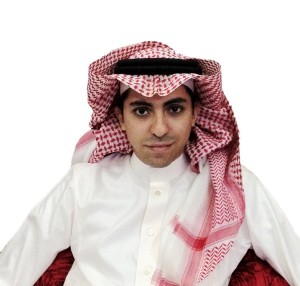 Raif Badawi was arrested in 2008 and again in 2012 for apostasy and insulting Islam by electronic means, i.e., he set up the website Free Saudi Liberals to enable discussion of religion and politics. Cited charges included “ridiculing Islamic religious figures” and “going beyond the realm of obedience” – whatever that means!
Raif Badawi was arrested in 2008 and again in 2012 for apostasy and insulting Islam by electronic means, i.e., he set up the website Free Saudi Liberals to enable discussion of religion and politics. Cited charges included “ridiculing Islamic religious figures” and “going beyond the realm of obedience” – whatever that means!
The Saudi court ordered him to undergo 50 lashes every Friday for 20 weeks, publicly outside a mosque on a religious day just after prayers, only the first instalment has been delivered to date, in the middle of the square in front of Al-Jafali mosque in Jeddah where a large crowd gathered to witness the flogging. Last Friday, he was again not caned – the third time the punishment has been postponed, allegedly due to his previous wounds not having healed enough, but also likely due to international media attention on Saudi following the attack on Charlie Hebdo and the death of King Abdullah.
Religion and Punishment
What kind of religion or state combines faith and flogging, prayer and punishment, in such a way? Well perhaps ancient Judaism might have done. Certainly, biblical texts of the Torah allow for the stoning of those caught in adultery, for instance, or tell of the clinical purging of an enemy for idolatry. That the populace tried to pick up stones, to stone an alleged adulteress, as recorded in the gospels, proves that the law was still known, if not in use, though there’s little record of it being enacted. Jesus intervened, in this case, and it didn’t happen. Likely as not, the Romans would have had a problem with people literally taking the law into their own hands anyway.
So, just because Jesus stopped a public punishment, does that place Christianity above Judaism in ethics? Far from it. Church history records the Crusades and the Inquisition, brutal tortures, executions, burnings of heretics, witches, liberals. Some countries and US states continue to commend the death penalty based upon biblical texts.
Islam – Peace or Violence?
Ironically, whilst Islam means “submission” it stems from the same root as the Arabic salām سَلاَم meaning “peace”. Numerous people have referenced its over 100 verses suggestive of killing varieties of “unbelievers”, yet it also condemns the taking of a single “innocent life” as equivalent to murdering the whole world. Like all religions, it seems, there is plenty of Scripture to cut and paste and formulate one’s own intolerant beliefs, or to foment and indoctrinate via human interpretation.
Just compare the negative Quran quotations with some of the more positive verses, including:
“Let there be no compulsion in religion. Truth stands out clear from error; whoever rejects evil and believes in God has grasped the most trustworthy hand-hold that never breaks. And God hears and knows all things.” – Qur’an, Al-Baqarah, 2:256
Indeed, all three monotheistic religions have scriptures calling for tolerance, mercy, love and peace. What we choose to focus on, judge by, is therefore, a function of our beliefs, not something we can justify by selective religious reasoning.
State Sanctioned Hypocrisy
The hypocrisy of not only Saudi Arabia, but those nations and leaders that visited the country in the wake of the recent death of the king, even flying flags at half-mast, like England but not Scotland, is visible to all. Transparently and desperately trying to get in with the new king to gain access to oil, defence, and trade agreements.
As Abulkair has written:
“As long as the oil keeps flowing, the world will turn a blind eye if Saudi Arabia continues to crack down on freedom and human rights.”
Saudi’s own hypocrisy lies in not exercising mercy and tolerance in order to deserve the same, principles cited by Muhammad himself:
“No mercy would be shown to him who does not show mercy”, Muhammad in Sahih Al-Bukhari and in Sahih Muslim
“Be tolerant to be tolerated”, Muhammad narrated in Ahmad Ibn Hanbal, Musnad 1/248.
Tolerance, or samah, in Islam is considered to also mean leniency.
Furthermore, it has been pointed out that they extreme flogging sentence breeches even the grounds and interpretation of Quranic and Sharia punishments.
Human Rights Campaigns
Various Change.org and Amnesty International campaigns are keeping the pressure up, but governments are turning a blind eye to Saudi, tolerating one form of extremism over another, Islamic State. Mainly, it seems, because IS (ISIL/Daesh) is missionary, i.e., wanting to expand and conquer, whilst Saudi is content to rule its own citizens with an iron rod, beheader’s sword and flogger’s cane.
Other international human rights, humanitarian, peace and journalists organisations have continued to publicise Badawi and Abulkhair, giving them prizes and awards to draw attention to their plight and honour their fight. For instance Badawi has been awarded the PEN Canada One Humanity Award 2014, the Reporters without Borders Netizen Prize 2014, and Aikenhead Award 2015 of the Scottish Secular Society.
Whilst the حديث ḥadīth or saying(s – technically أحاديث ʾaḥādīth is the plural) of the Prophet are outside the Quran, they like the Mishnah and Talmud for Jews, form a significant part of traditional interpretations for Muslims. Indeed, much Shariah law is derived from the Hadith. For those campaigning for the release of Raif Badawi and Waleed Abulkhair you could do no worse than to quote the following hadith to them:
“It is better for a leader to make a mistake in forgiving than to make a mistake in punishing.” – Al-Tirmidhi, Hadith 1011.
In fact it is an injunction of one hadith to call Islamic oppressors to account:
Allah’s Apostle said, “Help your brother whether he is an oppressor or an oppressed,” A man said, “O Allah’s Apostle! I will help him if he is oppressed, but if he is an oppressor, how shall I help him?” The Prophet said, “By preventing him from oppressing (others), for that is how to help him.” – Sahih Bukhari 9.85.84
The latest Amnesty International petitions can be found here: http://amn.st/6182IYIa and http://amn.st/6185IYIL. Twitter campaigns here: #FreeRaifBadawi and #FreeWaleedAbulkhair
Abulkair finished his final letter pending imprisonment with this:
“…freedom is cultivated, its seeds are those who have sacrificed a lot and have made the sky the limit to their sacrifice… There will always be free souls in this world who will not be silenced by oil!”
Please, and especially in the wake of Charlie Hebdo, do not forget those in prison for standing up for freedom of expression in the Arab world. Keep the pressure on governments, agencies and media alike to Free Raif Badawi and Free Waleed Abulkhair.
